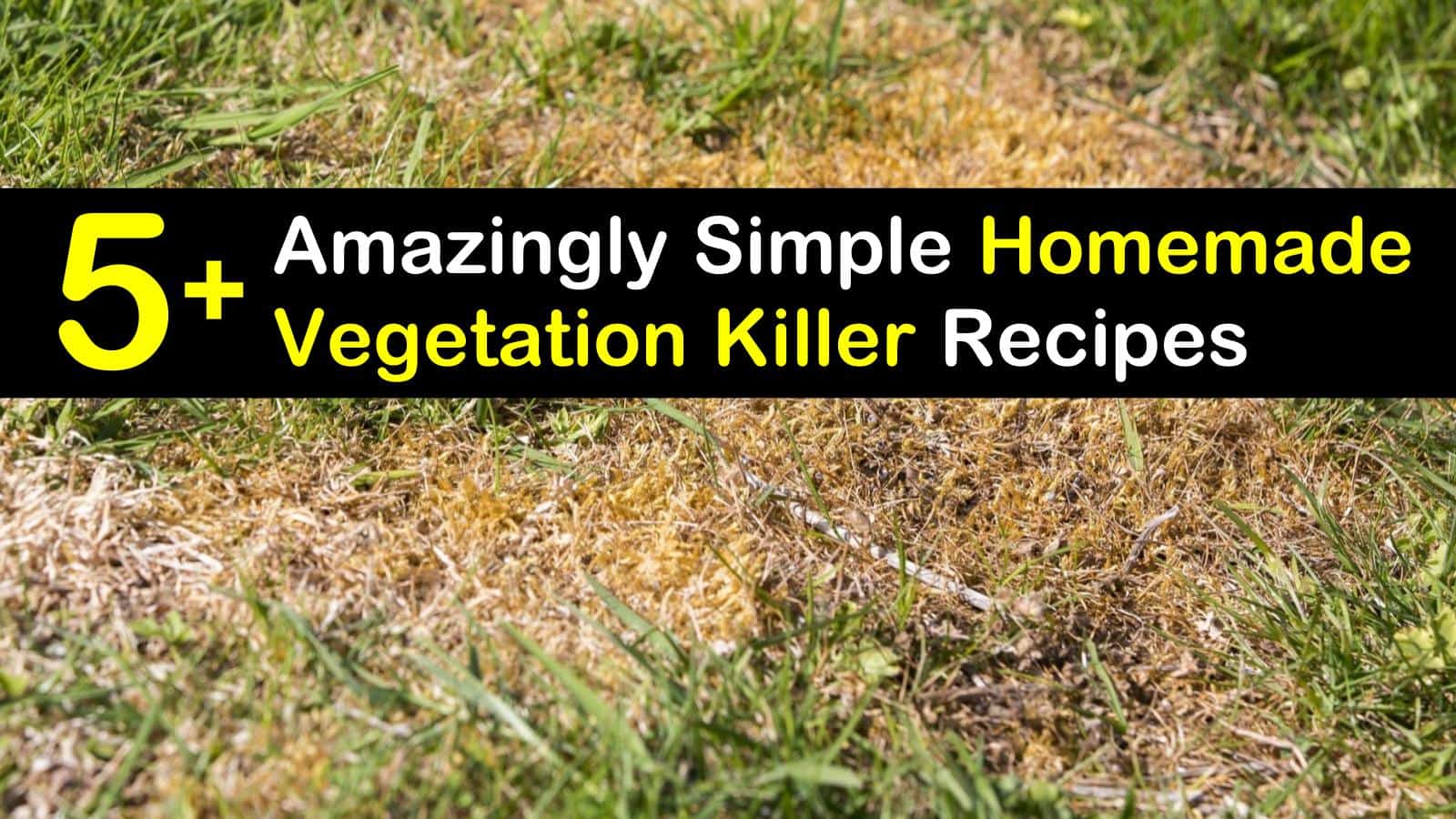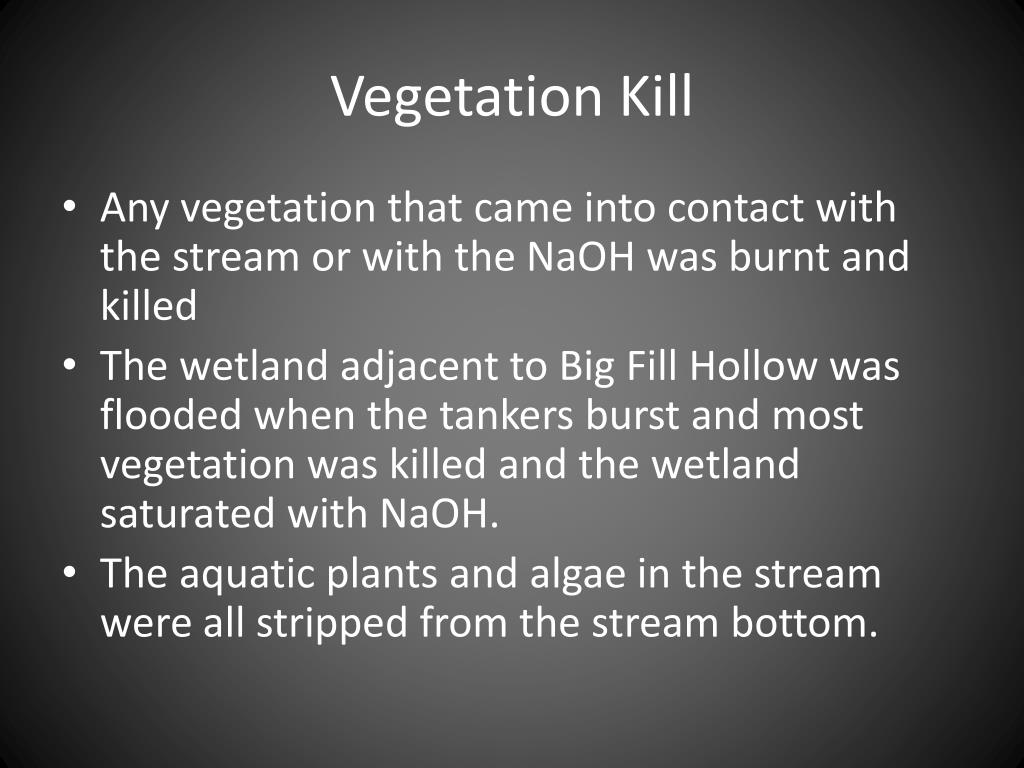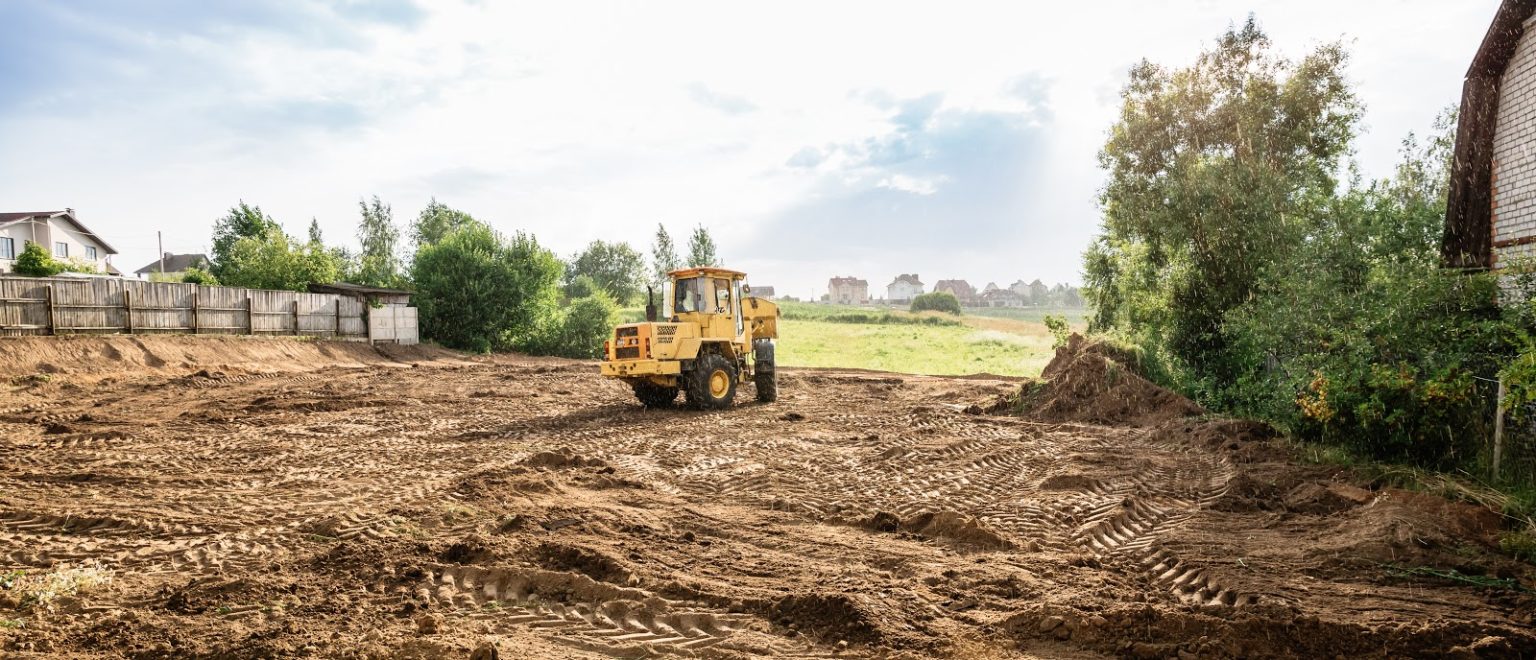Simple Tips About How To Kill Vegetation

By blocking access to water and heating up the soil, the solarization process eventually kills the vegetation underneath.
How to kill vegetation. One of the most effective options is to use a mixture of white vinegar, salt, and liquid dish soap. Introduction there are a number of ways to manage vegetation: If you want to create a more potent weed killer spray, there are vinegar concentrates available with.
13 natural and effective ways to kill weeds don't use a herbicide on your weeds—use a natural weed killer instead! For the urban gardener, the existing vegetation is usually turf or a mix of turf and weeds. Salt (sodium chloride) works to kill weeds by dehydrating the plants and disrupting the internal water balance of the plant's cells.
In rural areas it may be anything from pasture. You can use the excavator to dig up the vegetation and then remove it from the area and prevent it from. Shrug aside bark loss that would kill a lesser tree.
You can salt the earth so nothing grows on it by preparing the right tools and using the proper techniques. Grow back from a bare stump. Apply a chemical herbicide 2.
We've even adjusted ratios if we've got a short supply of one thing or. The before and after photos. While this technique works wonderfully on its own, this powerful effect amplifies when adding ingredients like salt and dish detergent to.
One of the most natural ways to remove any plant is by pouring boiling water over it and soaking it down to the roots. Acetic acid is an organic compound that helps kill weeds. Apply an organic herbicide 3.
Get a weed burner 6. There are several natural methods that can be used to kill weeds permanently. After just a few short hours, the plant starts to brown and die.
Pull weeds by hand 5. Using black plastic is the main way i recommend clearing land without using herbicides since it’s easy and suitable for organic gardening. Learn what to use to spray, sprinkle, or.
Eucalypts are not interested in dying. Table salt use the cheapest kind of salt you can find in the supermarket—not sea salt, rock salt, epsom salts (epsom salt, chemically, is not even.

















